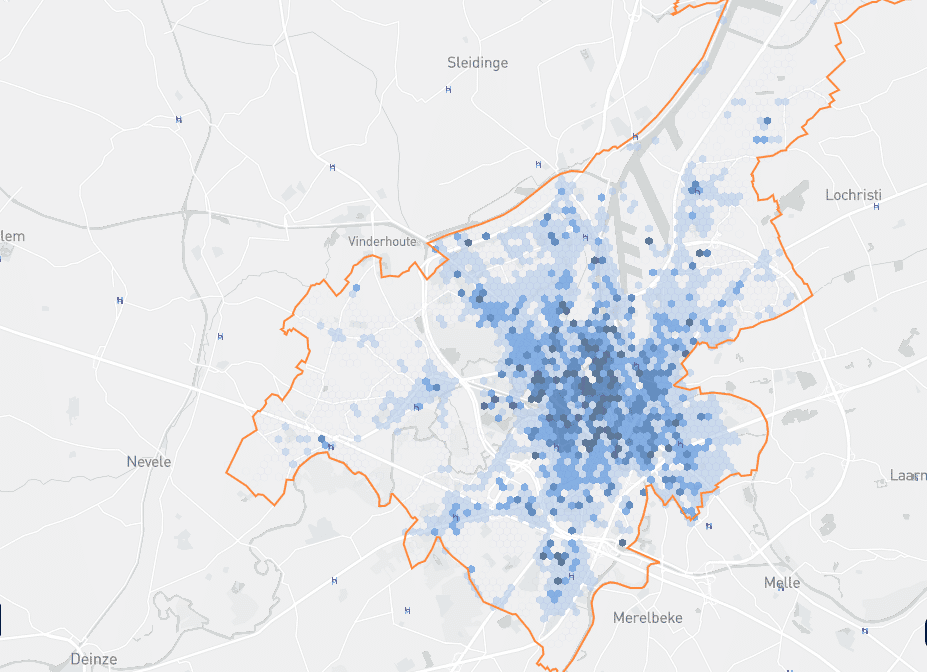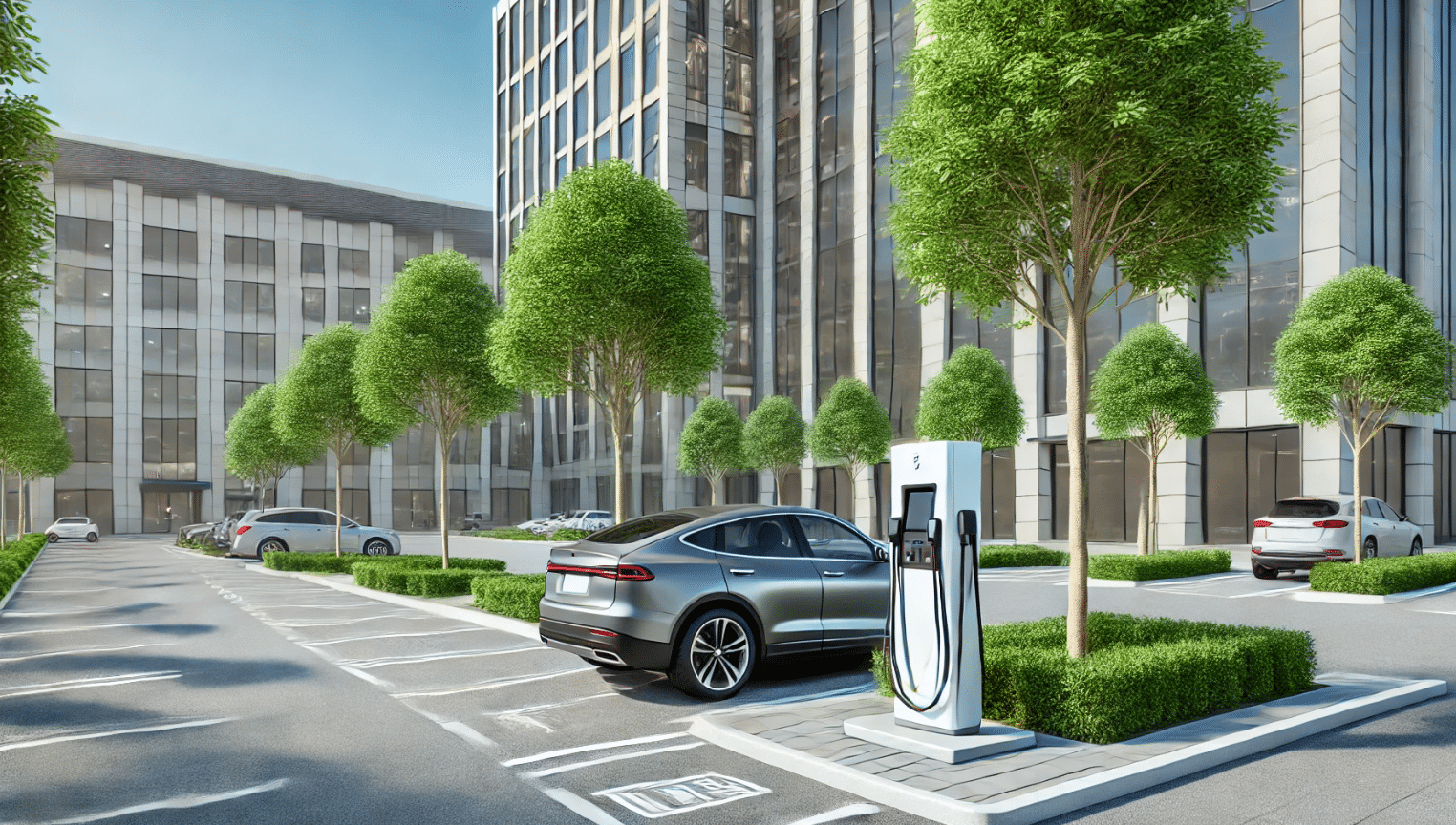The Flemish government has ambitious plans to electrify the car fleet quickly. There will be a lot happening in Flanders when it comes to charging infrastructure in the coming years. Ghent currently has the most charging points per resident in Belgium and in the field of electric community mobility, the city is very progressive. Ghent is supported by EVtools in the rollout of the charging network with smart and helpful software solutions, such as a map with potential charge points.
In 2021, Ghent published a European tender for the expansion of the number of public charging stations in the city. The city will install 800 new public charging points in public spaces over the next four years. As a result of EVConsult’s support in the tender, TotalEnergies was selected by Ghent as the CPO for the realization of the new charging points. To make the rollout transparent, Ghent uses the so-called potential maps from EVtools. To achieve zero emission transport and achieve climate goals, EVtools provides smart and data-driven software solutions.
Potentiële laadpunten
A map with potential charge points was created with Maps, one of EVtools’ software solutions. This map provides visual insight into the locations where public charging points can be realized. Several factors are taken into account, including the location criteria of the city, the distribution network manager Fluvius and end-users’ wishes. This approach simplifies the process of choosing a location for a charging point as much as possible. Those maps speed up the process of installing a charging station, since a charging operator can immediately start installing a charging station at one of the designated locations as soon as a request is received for expanding the charging network.
Analysis
To be prepared for the rapid growth of the Ghent charging network and to accelerate the realization process, EVtools started with a Needs Analysis. For this analysis, data was used regarding income, education, and car ownership of the inhabitants as well as the number of households and land ownership (public versus private). The location of the medium and low voltage grid was also included in the maps. When selecting charging locations, the location of parking spaces, the minimum space required to install a charging station, and specific placement criteria that apply in a city or municipality were also considered. Ghent is accelerating the transition to electric transport by directly responding to current and future charging needs.
As of 2026, new company cars will have to be emission-free. By 2029, new cars will have to emit zero carbon dioxide. Second-hand fossil fuel cars will even be banned in 2030. The demand for EVs has therefor tripled in the past year. This is in line with the growth of the charging infrastructure. It is expected that by 2030 there will be two million electric cars on the road in Belgium. To be able to charge them all, 150,000 charging stations are needed, according to AVERE, the Belgian federation for electromobility. At the beginning of 2021, there were 8,482 public charging points available throughout Belgium.



